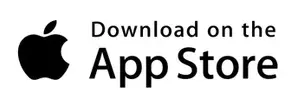|
Tech Slide Drags S&P 500 Lower Amid Fed Rate Fears; Earnings Season and Oil Inventory Surge Impact Market Sentiment |
|
|
The S&P 500 concluded Wednesday on a downward trend, primarily influenced by a decline in tech stocks led by Nvidia, amidst persistent concerns about the Federal Reserve’s inclination towards prolonged higher interest rates. By 16:00 ET (20:00 GMT), the Dow Jones Industrial Average experienced a slight dip of 45 points, equivalent to 0.1%, while the S&P 500 saw a 0.6% decrease and the NASDAQ Composite plummeted by 1.2%. Nvidia’s nearly 4% decline added strain to the broader tech sector, with other major tech players like Netflix, Apple, Meta, and Microsoft also experiencing downward pressure. Additionally, ASML’s over 7% decline weighed on chip stocks after its quarterly results fell short of first-quarter new booking expectations. Sentiment surrounding the growth sector, particularly tech, has turned sour amid a continuous climb in Treasury yields, fueling apprehensions that elevated rates might persist for an extended period. Stifel noted on Wednesday that Federal Reserve Chairman Jerome Powell had emphasized the Fed’s intention to remain on the sidelines longer than previously anticipated, given the unexpected surge in recent inflation data. Despite recent market losses, investor attention remains on the ongoing earnings season, with United Airlines witnessing a 17% surge in stock following a robust earnings forecast for the current quarter and a narrower-than-expected loss in the first quarter due to strong travel demand. Conversely, Travelers saw over a 7% decline in stock value after reporting a significant increase in catastrophe losses, primarily due to severe weather conditions in certain regions of the United States. JB Hunt Transport Services experienced an 8% drop in stock value after missing first-quarter estimates, citing revenue decline in its largest segment and pricing pressures in its brokerage business. Abbott Laboratories, despite surpassing Wall Street estimates for quarterly profit and revising its full-year forecast upwards on the back of strong product sales, saw a 3% decline in stock value. Crude oil prices retreated by 3% on Wednesday following concerns about future demand stemming from a rise in U.S. commercial stockpiles. Official data from the Energy Information Administration revealed a weekly increase in crude stockpiles, surpassing economists’ forecasts. Last week’s surge in oil prices to the highest levels since October, driven by heightened tensions in the Middle East, particularly between Iran and Israel, prompted concerns about potential supply disruptions in the region. |
|
|
|
|
|
Kinder Morgan Forecasts Surge in Natural Gas Demand by 2030 Amid AI Boom and Strategic Acquisitions Pipeline and terminal operator Kinder Morgan (NYSE:KMI) reiterated its annual profit outlook on Wednesday, anticipating significant growth in natural gas demand by 2030. With operations spanning approximately 79,000 miles of pipelines, the company foresees a surge in electric demand, particularly from burgeoning data centers supporting AI technologies. Based in Houston, Texas, Kinder Morgan remains optimistic about natural gas demand, citing factors like LNG export facilities and increased exports to Mexico. Despite a 20.4% decline in natural gas prices during the first quarter of 2024 compared to the previous year, analysts, including Stephen Ellis from Morningstar, highlight the potential for a 7-16 bcf/d increase in gas demand by 2030 due to AI demand. Reaffirming its 2024 profit forecast at $1.22 per share, Kinder Morgan attributes this stability to its acquisition of NextEra Energy (NYSE:NEE) Partners’ STX Midstream assets. Additionally, the company met first-quarter profit estimates, buoyed by higher volumes in its natural gas pipelines segment, including increased margins from storage assets and gathering systems, further bolstered by the STX Midstream acquisition. Kinder Morgan’s adjusted core profit from the natural gas pipeline segment rose to $1.52 billion from $1.43 billion a year earlier. Looking ahead, the company anticipates carrying lower debt levels, potentially leading to higher credit ratings and investor confidence. Reporting an adjusted profit of 34 cents per share for the January-to-March quarter, in line with estimates, Kinder Morgan also approved a 2% increase in its quarterly dividend. |
|
|
|
|
|
Ah, Thursday, the day where investors dust off their crystal balls and try to predict the unpredictable. It’s like trying to navigate a maze blindfolded, with occasional glimpses of daylight when the market decides to throw us a bone. So, grab your lucky rabbit’s foot and hold onto your hats, because investing on Thursday is like a rollercoaster ride through the financial jungle – exhilarating, terrifying, and always worth the thrill. |


